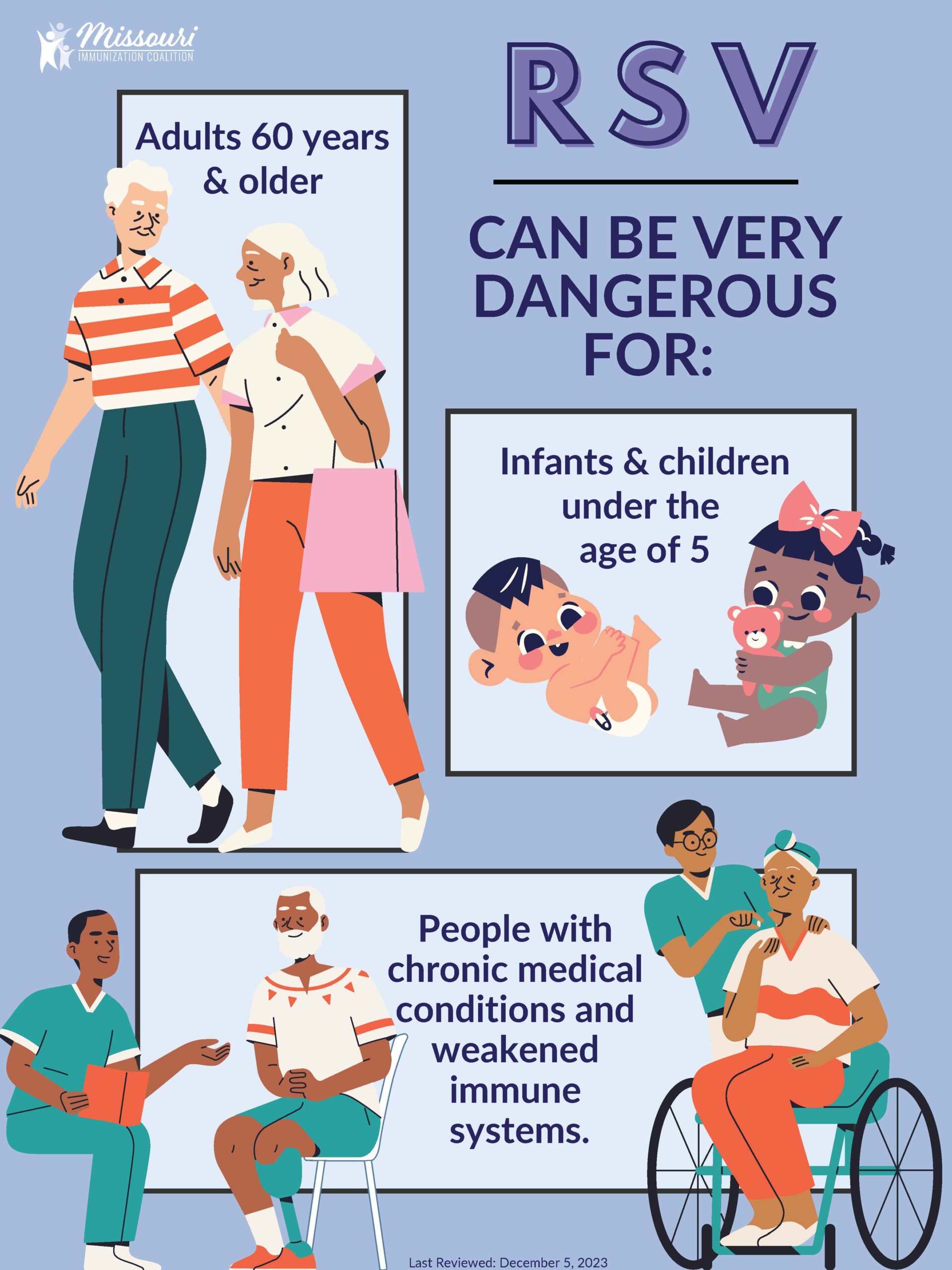 About RSV
About RSV
Respiratory syncytial virus (RSV) is a common illness that infects the lungs and respiratory system causing cold-like symptoms such as, coughing and sneezing. RSV is so common that most children have been infected with it by the time they’re 2 years old.
RSV can cause illness in people of all ages but can be especially serious for infants and older adults and can result in hospitalization or death. Infants and older adults with chronic medical conditions like heart or lung disease, weakened immune systems, or who live in nursing homes or long-term care facilities, are at highest risk of serious illness and complications from RSV.
Most people recover from RSV in a week or two, but RSV can be serious, resulting in shortness of breath and low oxygen levels. RSV can also sometimes lead to worsening of other medical conditions such as asthma, chronic obstructive pulmonary disease (COPD-a chronic disease of the lungs that makes it hard to breathe), or congestive heart failure (CHF-when the heart can’t pump enough blood and oxygen through the body).
Every year RSV causes around 80,000 hospitalizations in children under the age of 5, and 60,000-160,000 hospitalizations in adults over the age of 60.
It is critical to protect infants and older adults from RSV, and now we have the tools to prevent thousands of RSV illnesses, hospitalizations, and deaths.
Last Reviewed: January 2, 2024

